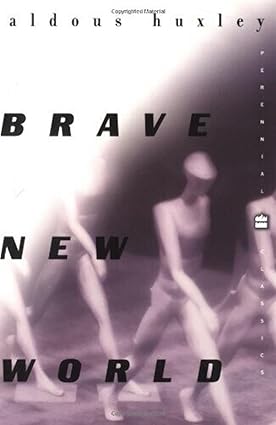 Inglés
InglésBrave New World
Aldous HuxleyLista de Espera
Cotizar Título
Confirmar Disponibilidad para Compra
Brave New World (1932) by Aldous Huxley is a dystopian novel set in a future society that is highly controlled and technologically advanced, where happiness is maintained through genetic manipulation, social conditioning, and the use of a drug called "soma." In this society, people are divided into predefined castes, and individuality is eradicated in favor of social stability and consumption. Social control is exercised through mental programming from birth, aimed at suppressing any desire for freedom or questioning of the system. Human relationships are shallow, and love, art, and creativity have been eliminated to prevent conflicts and ensure conformity. The novel focuses on the characters of Bernard Marx and Lenina Crowne, who, while enjoying the comforts of this society, feel a disconnection from the system they live in.
The central conflict arises when John, the "savage," a young man raised outside of this society in a natural reserve, is brought into civilization. His presence highlights the contradictions and lack of humanity in the "brave new world" as, despite its apparent progress, society has sacrificed emotions, values, and authenticity. Through John’s interactions with the citizens of the city, Huxley explores the consequences of a society that values consumption and stability over individual freedom and personal growth. The book raises deep questions about freedom, happiness, social control, and human nature, and it remains relevant as a critique of modern societies that seek conformity and control at the expense of personal autonomy.